Q&A with Moody Tongue’s Culinary Brewmaster Jared Rouben
I first met Moody Tongue Brewmaster Jared Rouben at a beer tasting back in the late fall of 2014. We chatted briefly but it was a memorable conversation because he talked about something I had never heard about before – culinary brewing.
Before brewing beer, Rouben graduated from the Culinary Institute of America in New York and the Siebel Diploma course here in Chicago. After graduating he was a cook in two different Michelin star restaurants. He began brewing beer in 2009. Rouben worked his way up from his start on the Rock Bottom Brewing team, then joined Goose Island where he was promoted to Brewmaster before starting Moody Tongue.
It took a long time; months even, for our schedules to sync up. I finally got the opportunity to sit down with Rouben at Moody Tongue and the conversation we had was one I’ll never forget.
When I scheduled this interview I figured I would make it a feature on Moody Tongue and go from there. But when I left the small brewery located on the south side of Chicago I knew it would be different. I couldn’t just do my normal work. Rouben’s answers to my questions were so complete, thorough and well articulated that I couldn’t just place them throughout a story. They needed to be kept whole and in their entirety.
So I did something I’ve never done before for PorchDrinking, I structured this story to be a Q&A. Rouben’s answers needed no help from me. The way he speaks about the creation process, the brewing process and beer itself is so interesting there wasn’t anything more I could add. Enjoy.
Talk to me about how you developed your passion for beer. You obviously have to love beer doing what you do.
Of course I love beer. I also love food though. But I would never say they are conflicting passions. For me they go hand in hand. My real passion is flavor and aromatics. We like to do taste panels here, but that’s nothing new. We like to taste other people’s beers. I think it’s really easy to get into your own bubble if you don’t. If we’re not tasting other beers or wines or spirits we aren’t challenging ourselves.
At the end of the day we are hunting for flavors and we are hunting for aromatics. The challenge is using our words, language, to describe them and communicate with each other. How many times do you hear someone say a beer is hoppy? Well guess what – all beer has hops. What are we really saying? How are we really using our language to explain what we are enjoying…or maybe not enjoying?
To be specific you might say there’s grapefruit in this beer. Well is it pink grapefruit or is it another form of grapefruit? This smells like plum. Is it a Bubblegum Plum, is it a Purple Plum or an Early Magic Plum? We’re really trying to be as specific as possible so our guest knows exactly what they are getting. You’ll find we do that with the names of our beer – like Sliced Nectarine IPA. Guess that you’ll probably find some nectarine in there. We think being transparent like that or at least providing some tips on flavors and aromatics you might experience is really important not only for ourselves but to our guests.
So you were a cook before you entered the beer scene. What made you want to start brewing beer?
Cooking, baking and brewing are not so different. You’re taking raw ingredients and you’re using time and temperature to create flavors and aromatics to make people happy. The more I found myself describing beer and speaking to beer the more I found that I was just speaking to food.
When we start to sparge I start to speak about how we are just taking that malt tea and transferring it over to the brew kettle and boiling it the same way you would a soup or a stock and instead of salt and pepper we use hops to season.
After that we transfer it over to a fermentation tank just like bread we throw our yeast in there, cross our fingers close our eyes and hope fermentation happens. They are too close not to speak in culinary terms.
We need to be more comfortable with being specific about what we like about our IPAs, our porters, our wheat beers. If using culinary language makes it easier to do that we should embrace that. You’ve been eating since the day you were born. It’s nothing new to us. Whether you cook or don’t cook, you still have to eat to survive.
You don’t have to be an expert to enjoy beer. Beer is for everyone. The sooner we make people comfortable with the language the sooner people will get out of their comfort zone and try a new style they’ve never had before and get pretty excited about it.
Beer needs to be shared. That’s the moral of the story. The last thing I ever want it to be is intimidating.
Where do you get the inspiration for your ingredients?
For me – go out to eat. Go out for Italian, Vietnamese, Chinese, Thai, Gastro Pub, I feel like I’m spoiled because we have so many good restaurants in the city that explore so many different flavor profiles.
On top of that we have farmers markets. We have really great farmers in the Midwest. Whether you get it from Illinois, Michigan or Indiana you can really taste your way through the seasons and it’s hard not to be inspired by that. I feel like we have it all. I feel like that’s where a lot of my inspiration comes from.
We look to spirits, we look to bourbon, we look to brandy, we look to cognac. We look to beer, wine and cider. We try to taste as much as possible. It’s not about having a lot of something it’s about tasting as much as we can. That’s our library. When we go out to a market we’re trying to taste all the different apples, all the different plums all the different nectarines. We ask ourselves what we like about it and at the end of the day the final question is do we want this in our beer or do we just want to have it with our beer.
It’s flavors and aromatics. That’s what we are always looking for and that’s what truly inspires us. Being in Chicago there is no shortage of inspiration.
When you’re at a restaurant do you constantly think the ingredients you’re eating could be in a beer you want to brew?
Honestly 99.9% of the time I’m the one who nixes my own ideas or suggestions. I think we have to be really careful with what we are doing. We’ve been fortunate to earn some trust from people. We aren’t big on taking advantage of your palette. We want to make room for food or whatever else you’re enjoying.
We just want to be a part of the equation and one that hopefully elevates whatever else you’re experiencing. We try to be really sensitive. To be honest with you, we pride ourselves on restraint. It’s easy to be heavy handed, whether it’s with hops or salt or hot sauce. Everyone can put too much, but knowing when to pull back is something that we are really proud of.
Why do you nix 99.9% of all your ideas?
I’m not here to experiment on people. Our guests aren’t guinea pigs to us. We want to taste and taste and make sure it’s perfect before we share. I think that’s the only fair way to create. If we’re pushing something on you that we’re not comfortable with then what are we really doing? We really value trust and it’s really hard to earn and it’s really easy to lose. You’re only as good as your last beer.
If we don’t question ourselves throughout the entire process then we’re really not valuing the Moody Tongue name and Moody Tongue in general. The name itself kind of defines what we are doing – someone with a discerning palette. There are a lot of options but I think we all have moody tongues and we really hold those standards high. We’re not going to compromise, we haven’t compromised yet and that’s really not something I’ve ever been interested in. The people that really inspire me really take that same approach.
Who inspires you?
Great chefs, great brewers, great wine makers people that are always working on their craft, people that are always pushing themselves. People that truly appreciate creating something that makes people smile. You know when you do a great job people don’t have to say anything. They smile and nod their head.
When I really started becoming a better brewer was when I was looking at the bar and watching people’s expressions when they took that first and second sip. If they smiled, I did well. If they looked down and shook their head then I can improve on something. I think if you’re ever creating something, whether it’s food, beer or wine, you have to listen to your guests. They tell you everything – either through body or facial expressions or sometimes through words. You have to have thick skin – you’re never going to get better if you don’t listen.
You use such fresh ingredients. When they aren’t in season how does that change how you brew?
Sometimes we use dry ingredients. We have to be pretty smart about that. At the end of the day regardless if it’s fresh or dry we use the best ingredients. Whether it’s malt, hops, yeast or water, we pride ourselves on using the best and taking care of it. Great ingredients don’t make great beer. That’s just the beginning. That just gives you the opportunity to maybe make something delicious. You can go out and buy the best piece of Kobe beef but it’s really easy to mess it up. So we try to be careful.
Moody Tongue really rests on three pillars – the first is sourcing the best ingredient. The second part of that is taking care of it and the third is knowing where and when to incorporate it back into the liquid. And sometimes there’s no ingredient at all. Beer has always been fantastic.
You asked why I nix 99.9% of my ideas, it’s because long before Moody Tongue came along, people had been making fantastic brews. If we add anything else to it, it better be for a really good reason – otherwise beer is already great.
I say we never want to put parsley around the plate. It serves no purpose. If you add anything to beer, whether it’s a bourbon barrel or whether it’s that next batch of dry hops you better have a really good reason. If you’re not asking yourself why you’re doing it, for us here at Moody Tongue, we feel like we’re being careless. You have to take care of people’s pallets. It’s really easy to put too much salt, hops or hot sauce. People can’t taste anything after you do that. We want people to continue tasting and consuming food. We don’t want to be the reason why you can’t go onto your next course.
Talk to me about the truffle pilsner you brewed recently?
Truffles are something that have fascinated me since my time at the Culinary Institute of America in New York. They’re something I knew were rare and valuable, certainly something I wasn’t raised with. I had no idea what a truffle was; I thought it was chocolate. I was taught by our chef to treat it with great respect, pay attention to it, it will tell you what works and what doesn’t work.
One of the things that was taught to me is that it’s difficult to contain the flavor and it’s difficult to contain the aromatics. That’s why I’m drawn to truffles. It’s not like you can go to the corner store and grab a truffle. I thought because it’s such an aromatically-driven ingredient it might have a place in beer.
I didn’t want it to compete with the other aromatics from hops. So I wanted something very clean, something that would highlight the truffle. For me I wanted the aromatics of black truffle but the flavor profile of beer. In the end of the day we are making beer and I’m a brewer. The last thing I want to do is lose the integrity of beer. The way black truffles work when handled properly, you can grab the aromatic without distorting the pallet. So what better way to showcase a truffle than having a pilsner? If I have the most beautiful ingredient in truffle I think it deserves one of the most beautiful beers to be the vessel. So we went all in. It’s hard enough to make a great pilsner but to incorporate an ingredient like truffle was just exciting and an honor.
We trust each other and I called chefs and I called my teachers and I called anyone who had worked with a truffle before and I opened books. I was really careful. We took no shortcuts and it turned out really beautifully. It’s wonderful because you got this really delicious German pilsner with beautiful truffle aromatic. If you’re looking for truffle French fries you’re not going to be happy. There are no artificial oils in here. It’s all real natural truffles that I shaved. For me what better way to exemplify culinary beer and what better way to bring together the culinary world and the brewing world. I had the opportunity to create something special and share it with people. I’m really thankful for it.
The truffle pilsner made some news because you sold it for $120 a bottle. Did you get any pushback for pricing a beer that high?
If we’re talking about truffle beer or a premium care or a premium bottle of wine or, price is always a deterrent. The way I speak to it is the way I speak to all of our beers. The cost of the beer is a reflection in the cost of the ingredient. Truffle happens to be more expensive. I wish it wasn’t but it is. Like any businessman or woman, if it costs you this much you certainly don’t want to lose money.
Is there an ingredient out there that you really want to work with that you haven’t yet?
I’d love to do something with strawberry, but I’m really intimidated by it. It’s such a beautiful ingredient and it’s so perfect on it’s own. I would want to highlight it you know, I’d really want to make sure it’s not compromised. I kind of approach all of our beers that way. Whether we use an ingredient or whether we don’t use an ingredient.
I want to make sure that at the end of the day we showcase the malt we showcase the hops and it tastes fantastic. I’d approach a strawberry the exact same way. But it’s hard to mess with the strawberry – it’s pretty fantastic on it’s own in the raw. I’ve been brainstorming; let’s see if I can put something together.
How long does it take you from idea to brewing to get a beer in a bottle?
There are still ingredients I’ve been trying to incorporate five years ago. Nothing happens overnight around here. We’re slowpokes when it comes to taking an idea and formulating it. I’m joking when I saw slowpokes, we’re careful. We’re guilty of overthinking to be honest with you. We feel at the end of the day if we put our time into it and really research the ingredient then we have better control when we start to incorporate it within our liquid.
What’s up next beer-wise for Moody Tongue?
Consistency. We’re not looking at what’s next. We’re looking at what’s now. What I mean by that is that in our industry everyone’s looking for the next biggest greatest thing. The best thing to achieve and this might be the most boring thing for me to say is staying consistent.
Working on our Sliced Nectarine IPA, working on our Caramelized Chocolate Churro Baltic Porter and making sure every time you order a Steeped Emperor’s Lemon Saison it’s the exact same. That’s really difficult. Coming up with something new is what I did at Goose Island in the past is fun and exciting but it doesn’t always mean it’s better. I think I have three beers I’m very proud of right now. I want them to continue to be shared with people and so I’m going to work on making consistently delicious beer.
Follow Mike Zoller on Twitter/Untappd: @mikezoller and Instagram @chicagobeer.


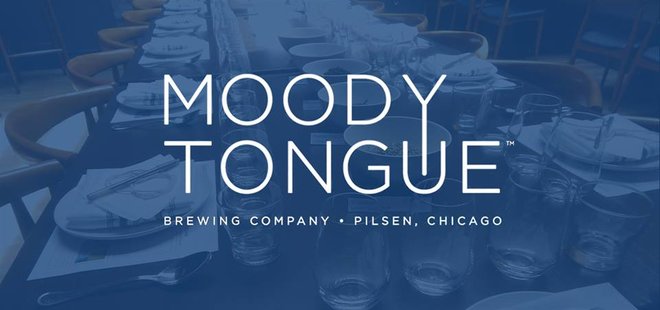
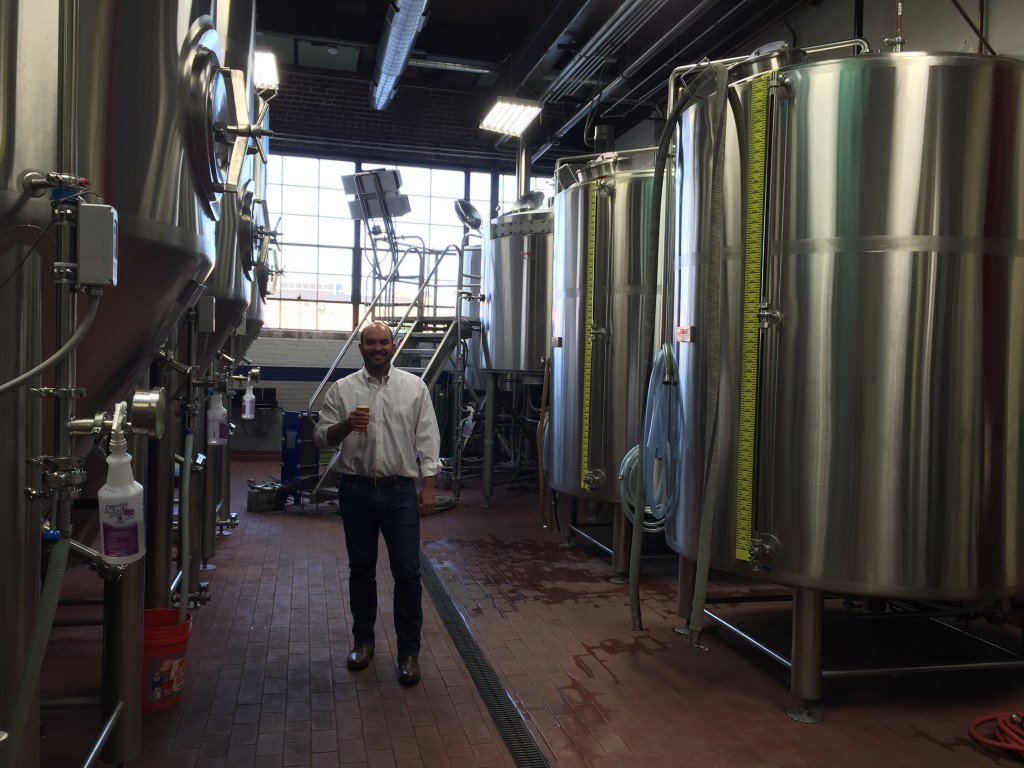
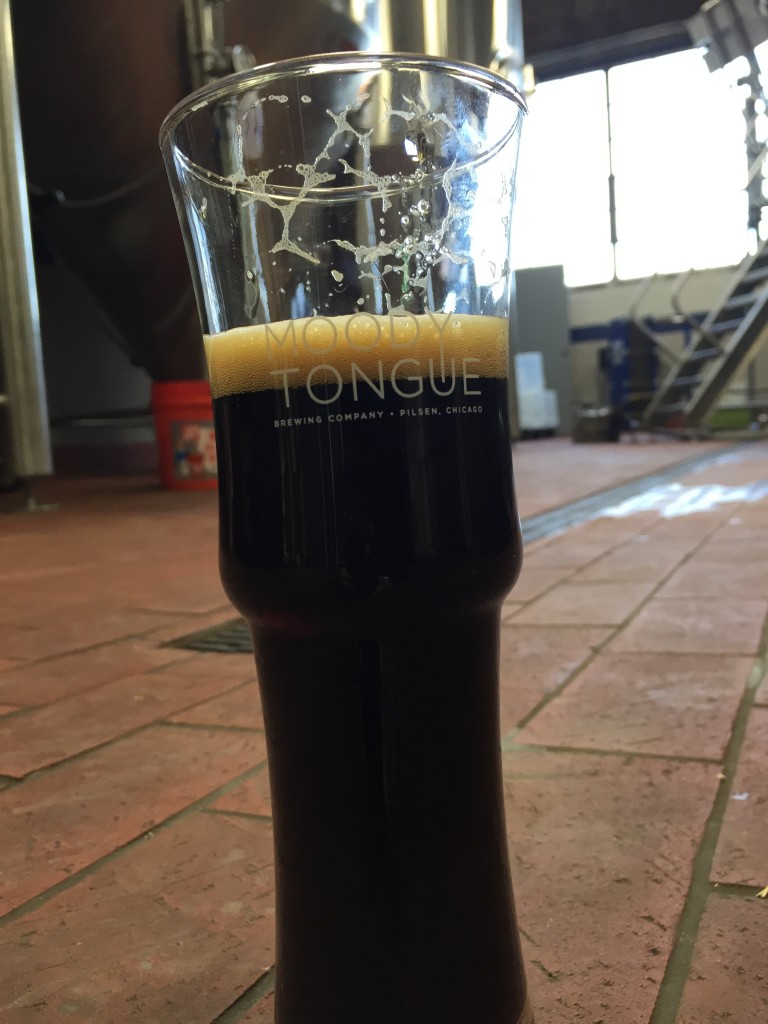
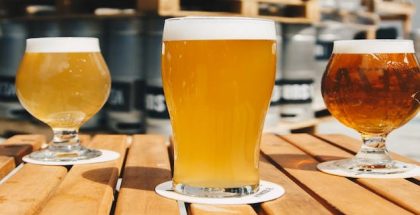
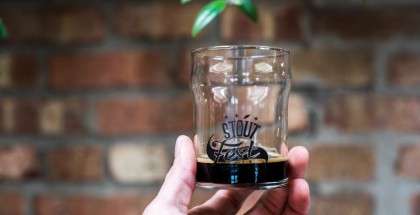


Submit a Comment